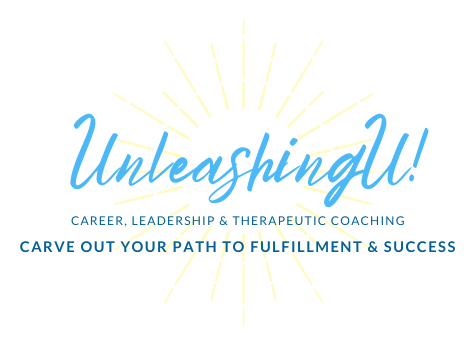
Something has been bothering me for quite some time and I felt compelled to write about it here and share it with you.
I have a problem when I read or hear about other helping professionals, who are not trained Coaches, using the term ‘Coach’ as part of their professional title. I know that I may be ruffling some feathers writing about this, and at the same time I really do believe it is important for me to share my views that I feel will benefit both the clients I and other professionals serve and the helping profession, as a whole.
I very much value the professional training that I received to become a Professional Certified Coach at The Academy for Family Coach Training headed by Diana Sterling. I already had my Masters Degree in Social Work, as well as my Social Work License and was working in the field of Social Work for seven years before enrolling in my coaching course. And in all my years of studying the field of psychology (which began in undergraduate school) and then social work in graduate school, I always knew that I wanted to work with individuals, groups, and families. However, I also felt that something was lacking in my training in terms of how I wanted to help and serve those I wanted to work with. While both my undergraduate and graduate programs were excellent for instilling in me a thorough overview of various approaches, theories, and applications for therapy, clinical and group work, I always felt that something was lacking in my training that was holding me back from fully launching my private career.
It was not until I learned the principals and specific techniques of professional coaching that I finally felt I had found an approach and framework within which I felt comfortable and ready to launch my personal business in helping individuals and groups in the way that I have always wanted to.
Coaching has become a popular term and trend these days and other professionals have admitted to me that they add ‘Coach’ to their title in order to attract clients. But ‘Coaching’ is not just a trend and a term. It is a specific approach and theory of practice just as any other approach is. It has a set of guidelines, principals, and code of ethics to follow to help the professional guide the client in their personal growth and success in life.
To call oneself a ‘Coach’ when one does not have professional training or certification in how to be a professional coach is irresponsible and inauthentic to both the field of helping professionals and to the clients we wish to serve.
I believe it is important to be honest and authentic with our clients at all times. We should be open about who we are, what our training is, what we believe, what our approach is and how we believe we can help those we aim to serve. Calling ourselves, or giving ourselves a title of something that we are not, negatively affects our own integrity and credibility and that of the helping professional field, as a whole. And it is unfair to those we want to help and serve.
My Recommendations for Helping Professionals:
If you are a helping professional and interested in the field of coaching or calling yourself a coach, I highly recommend you look into professional coach training programs before adding ‘Coach’ to your title. Learn and understand what the guidelines, principals, code of ethics, and approach of coaching is. It is specific and distinct from therapy. I was taught in my coach training to not mix the two (therapy and coaching) when working with clients. They are two distinct approaches that serve equally important purposes depending on what the client requires. (I prefer and apply a coaching approach in my work and am upfront and open about that with my clients from the very beginning. I, therefore, recommend and refer my clients to therapists or other helping professionals when that is what they require.)
My Recommendations for those Seeking Professional Support and Guidance:
You are the consumer. Become aware of and educated in the various approaches and theories of practice that are available. Do your research and ask good questions of yourself and others. Here are some guiding questions that may help you:
Questions to ask yourself:
- What is the difference between therapy, coaching, consulting, and mentoring?
- What kind of support do I feel I require at this time?
- Whom do others recommend and why?
Questions you can ask a helping professional:
- How did you get into this field?
- What is your training in?
- What do you enjoy about it?
- What is your approach? How does it work? How will you apply it to helping me?
The more aware and educated you are, the more likely you are to make a better choice for yourself (which will also lead to you having more success in you reaching your goals with anyone you choose to work with.)
If you have any questions about the various approaches available, I am happy to answer them. I will do my best to answer your questions based on my own personal and professional experience and will refer you to other resources to help you answer your questions about approaches I am less familiar with.
You can leave your question or comment here, or email me privately, as well.
Have an incredible day and week!
In support and admiration,
~ Jenny







Jenny Sassoon
Hi Danielle,
I appreciate your comment and you taking the time to write it. I also appreciate the distinction you make about Coaching – with the capital ‘C’ vs. ‘coaching’ – a term that has existed before ‘Coaching’ became a therapeutic/helping profession, and a term that is still used today in various forms. But because ‘Coaching’ is now a profession which one can get professional certification and supervision in (which I have and do), it has taken on a new meaning to those we serve and those seeking a ‘Coaching Approach’ to moving forward in their lives, and not Therapy. I am therefore advocating to reserve the title ‘Coach’ for those who have been professionally trained and certified in this area. I am also advocating for all of us to represent to others who we truly are and to honestly explain to others what it is that we do and how we work. I also appreciate you making the comment that ‘you are pretty certain that [I] have not been a social worker for as long as 15 years.’ I do look much younger than my actual age and I have taken that comment as a compliment. So, thank you 🙂
Danielle
I think that there is a distinction between a “Coach” and a “coach”. Keep in mind that the word ‘coach’ existed before the coaching became a therapeutic profession and entailed some kind of specific philosophy.
Therapy by nature should feel like a supportive, process in which a therapist is coaching a client in learning new skills and ways of living functioning. The coaching you are referring to is capital ‘C’ coaching; where you have gone through a specific training, follow a specific modality, etc.
You talk about how people represent themselves professionally and it’s true, people do flirt with cutting corners in their certifications. I noticed that in your profile on Chedva’s website, you wrote that you have “15 years of experience”, though I am pretty certain that you have not been a social worker for that long. Is it deceptive that you wrote that? No, but you certainly want people to focus on the experience and knowledge you bring to the table, not just the certifications. So if you’re gonna get all frustrated about how other people market themselves, you should also take a look at yourself.
Gila Cohen
What I am learning: First of all, since starting to date I see that an introduction or contact through a website happens anywhere / anytime. I am understanding that the support that I require is not a ‘weekly session’, nor to have someone on beckon call but to know that I can phone or email questions, occurrences and ideas / perspectives and receive a response that day or soon after.
I require guidance on specific dating issues as they arise.
Secondly, that previously I have had very little insight into what a healthy relationship is with a partner or spouse and what is required of me in that relationship. What I should pay attention to and what to ignore.
To date effectively and carefully I require a personal handbook made by me with guidance from my coach with a main focus on the key points that I made in our first ‘coaching’ meeting. This I will carry along with my ‘relationship toolbox’ – my guide to being better, stronger and self aware of how I behave and others behave towards me.
This way I am recognizing the red flags for what they are, pushing aside any people-pleasing behaviours or desperate and unhealthy ‘needs’ that I have for companionship.
The coach should already have, after several sessions an insight into where I ‘fall down’ and where I ‘hold myself up’.
I obtained a new and very insightful Rav / mentor in London as of 4 months ago and he is my regular point of call in dating situations. He has been a sound coach for me through the dating experiences that I am having. He listens to the specific situation, combines it with pointed questions about how this makes me feel and what I can compare it to. We are using previous examples, and identifying traits and cycles within me and inappropriate behaviours in these men.
What I will do: is continue to use my Rabbi – not because it’s free but because it’s really helpful. I am confident that each new ‘conversation’ is getting me closer to resolving many of the questions that I have regarding the date’s response / question / actions / attention / his family situation.
I am learning what is considered ‘normal’ and acceptable’ in dating and relationships.
Jenny Sassoon
Thank you for sharing your comment Gila. I am glad that you had the experience of working with a professional coach whom you viewed as ‘excellent and qualified’ so that you can see the difference in both approach and effectiveness. What questions might you have for this ‘dating coach’ you are currently seeing? It seems to me based on what you wrote here that you are not too satisfied with the ‘support’ you are currently receiving. What are you learning about the type of support you require at this time and what will you do about it? 😉
Gila Cohen
I have recently started working with a ‘Dating Coach’. She is an intern for another Family Therapist and works at a heavy discount which at the moment I can manage.
Previously I worked for a little less than a year with a very professional coach who made a plan and signed a contract with me, she explained her role and mine, challenged me. When I rambled off track she brought me back to the focus and coaching aspect of our work. I believed that she was really working hard on understanding how I tick in order to empower and show ME to understand the changes that I need to make to be the strongest and best me.
After reading the article you wrote here I am reminded about the feelings of empowerment I experienced in coaching before. Perhaps the fact and that she is an intern is the answer to whether she is a coach. So far after 4 sessions we have had more therapy than coaching. When I have rambled it’s mainly me who brought myself back to the point by pausing – reconnecting and moving on. I have no new tools to work with in my dating currently and am winging-it when I actually meet a guy.
When we are dealing with specific aspects and change in a person it needs focus and I agree that we need to be the pivotal point of our change and in order to do that we need an excellent and qualified coach.